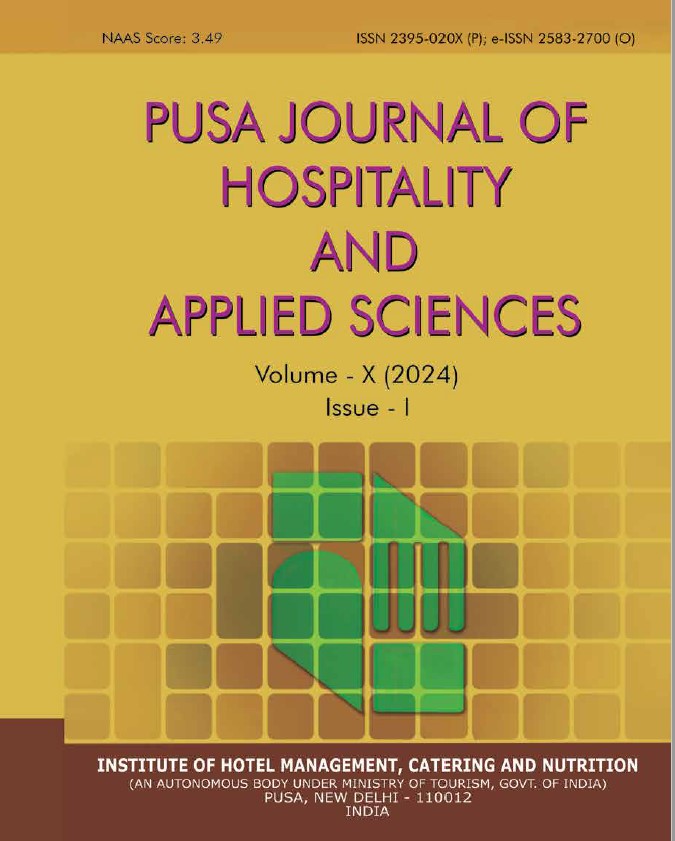Fresh Vs Frozen Food: A Study On Consumption Patterns Of Millennials
DOI:
https://doi.org/10.48165/pjhas.2023.9.1.2Keywords:
Millennial, Lifestyles, Food Consumption patterns, Frozen Fresh, Health FoodAbstract
Background:Now days we get food in many forms such as fresh food, frozen foods, convenience food, packed foods etc. Frozen foods are made-up or partially made-up dishes which have been frozen to -20 degree C and which can be stored for at least 6 weeks and generally much longer in the freezer. Though fresh food is always the best option for human consumption, there must be a comparison made and reasons found for choosing frozen food over fresh in a fast-paced world. Objective: To understand the reasons behind the consumption patterns of millennial towards frozen food and to study the consumption patterns of millennial for frozen food and fresh food. Methodology: The present descriptive study was carried out in the context of millennials. The four dimensional study was carried to know the food consumption patterns such as purchasing patterns, nutritional perceptions, family acceptance and cooking preferences. The sample size of 95 millennials was collected through Google forms, analysis the data such as means; percentages and Cronbach's alpha were applied. Results: The results of the study revealed that Consumption status of frozen foods since last one year for millennials has increased by 34.7% and 62 respondents inclined for the frozen vegetables and processed vegetarian food over fresh food in same category. Conclusion: As millennials are 30-40 years old, married, and probably have children by now, this research has found that their consumption pattern has switch from fresh to frozen foods. However the motivating factors that motivates them to choose frozen food over fresh foods still includes the personal preference and convenience in cooking.
References
Jain, A. J. (2022). Reasons for Booming Frozen Food Industry:Critical Analysis of Past, Present and Future. International Journal of Science and Research (IJSR), 979-982.
Barb Renner, B. B. ( 2021). The future of fresh in a changing competitive landscape. Deloitte Insights.
Fernandes, S. (2022, May 15). Markets racing to meet millennials' food habits. The Hans India.
Glen, S. (2021) Probability and Statistics Topic Index from Statistics. How To. com, elementary statistics for the rest of
Insights, F. b. (2022, January). Food Processing and processed food / Frozen Food market. Retrieved from h tt p s:// w w w.f o rt u n e b u si n e ssi n si g h ts. c om: https://www.fortunebusinessinsights.com/
Ramya, M. (2014, March 15). Women consumers attitude perception on home meal replacement foods. Retrieved from Shodhganga: http://hdl.handle.net/10603/37206
Sahgal, S. (2022, December 1). The frozen food industry booms with each passing day. times of india business.
Singh, P. N. (2017). A study on food related life style and its Impact on packed ready to heat and eat food Products.Bharathidasan University.
Times, T. R. (2018). How The Changing Food Habits Of Millennials Are Impacting The Restaurant Business. The Resturant Times.
Saini, D. S. (2022). Consumer attitude and adoption towards frozen food (Green pea and sweet corn) in district Lucknow, Uttar. The Pharma Innovation Journal, 2994-2998.
Zachariah, M. P. (2016, march 1). Just Food. Retrieved from https://www.just-food.com/ How millennials are shaping Indian food consumption: https://www.just food.com/




